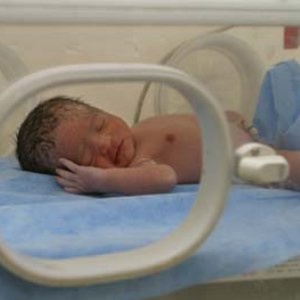
Independent Online reports that two babies have died at the Inkosi Albert Luthuli Central Hospital in Durban due to a multi-drug resistant infection.
Seven other babies were infected – all within one month.
Life-threatening infection
The Acinetobacter infection causes septicaemia, meningitis and hospital-acquired pneumonia, especially in people with weakened immune systems, but according to the Department of Health it cannot be classified as an outbreak.
Read: Newborn immune system
The DA offices in Pietermaritzburg acquired a list of patients who were infected with the bacteria, and an email from one health professional to another states that from February to date there have been 9 babies with this organism. Four babies arrived with the organism and the rest acquired it in the hospital.
DA MPL Dr Imraan Keeka said he received a call from a source last week informing him of the outbreak.
Keeka managed to acquire documents from the hospital, and after verifying these documents he sent a letter to health MEC Sibongiseni Dhlomo:
“The fact that the department kept this information under wraps is criminal… To then acquire this life-threatening infection, while being in what is supposed to be one of the best units in the country, is shocking… Clearly infection control regulations are not being adhered to as this is not the first of such outbreaks.”
Spot inspection
Keeka stated that he would urge Dhlomo to table a motion in Parliament and indicated that he expects the department to immediately conduct a comprehensive inspection of infection controls in the hospital.
Read: ICU gloves and gowns may reduce infection
The leaked document also included the results of a spot inspection at the neonatal ICU in March, which found among other things:
- Unacceptable waste management
- A dirty sluice room
- Linen irregularities
- An unchecked emergency trolley with an unprepared oxygen cylinder
- A dead baby’s chart revealed the mother was not kept informed of her child’s condition until death.
- In one case the administration of medication was delayed by two hours.
According to Health department spokesman, Sam Mkhwanazi, the hospital had identified the presence of the Acinetobacter, which was addressed according to infection control protocols. He added that because the babies were born prematurely they had poor immunity and that Acinetobacter was not the primary cause of death.
Mkhwanazi extended his condolences to the families of the babies and added that the situation was under control and there was no outbreak as such.
“These protocols were extended to the mentioned hospitals. The babies who passed away were born prematurely and had poor immunity. They were in the intensive care unit and had been on life support. The bacterium was not the primary cause of death.
“The department regrets the loss of lives and extends its condolences to the families. The situation has been dealt with and there is no outbreak.”
Read more:




 Publications
Publications
 Partners
Partners










